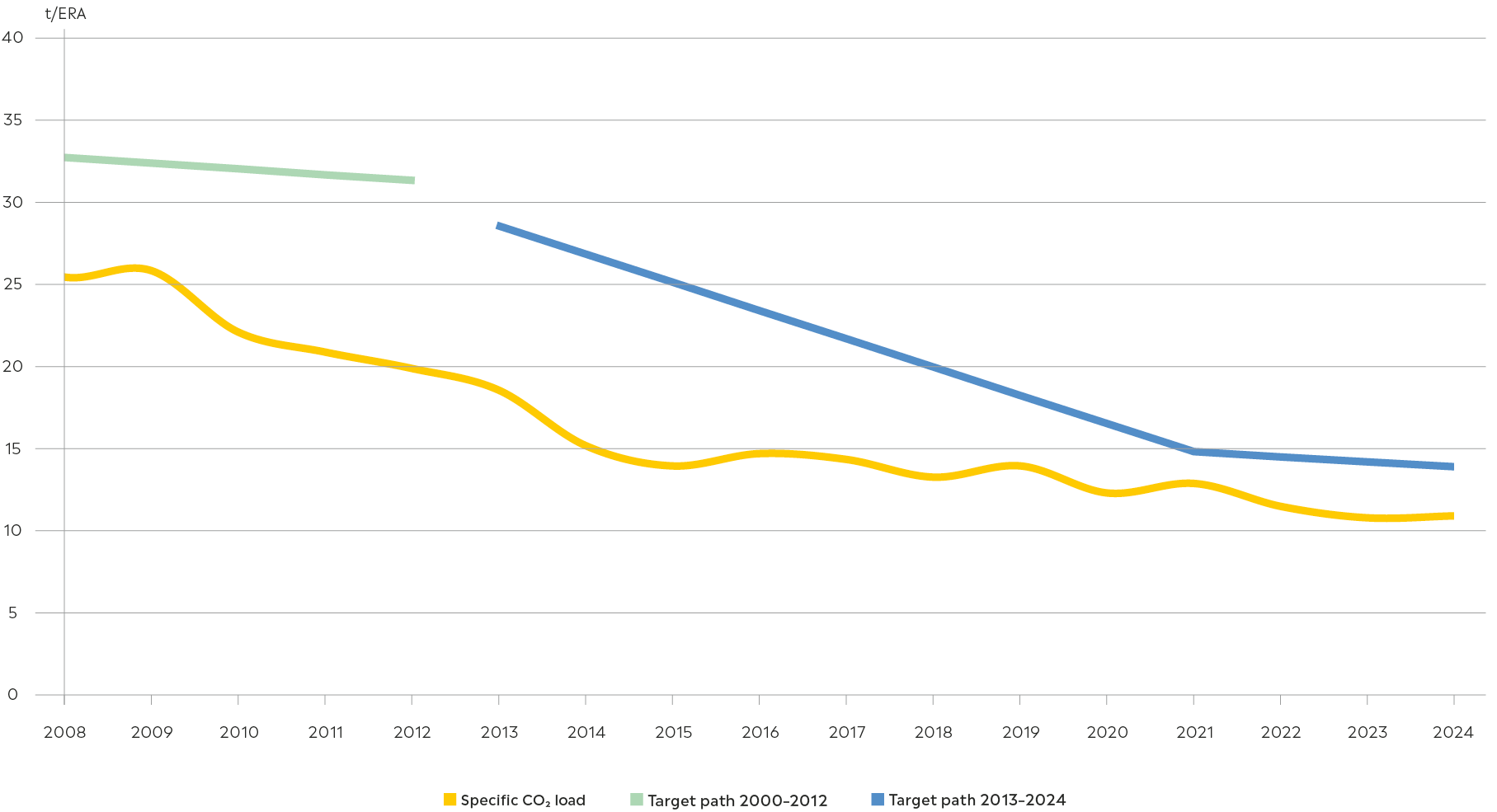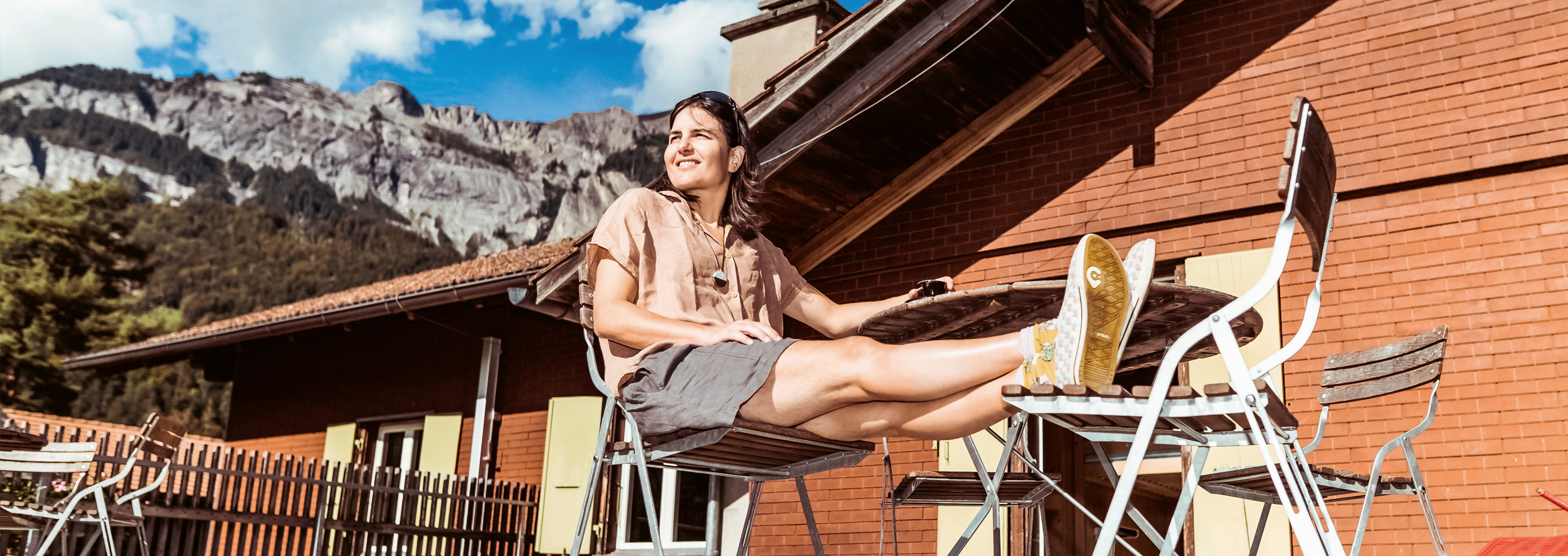Relationship with the environment
Environmentally friendly hostels are a must for us
We are mindful of our Earth. This is why we have been committed to environmentally friendly tourism for decades. We build our youth hostels in an environmentally friendly manner, promote renewable energies, support environmental protection projects and offer our guests an environmentally friendly dining experience. We leave as few traces as possible in nature. We want to play a far-reaching pioneering role in environmental and climate protection. We thus pursue the implementation of effective measures in the interests of a circular economy and act responsibly and out of conviction.
Scuol Youth Hostel
The environmentally friendly operation of youth hostels begins at the stage of construction. Through Minergie, they save energy, through Eco, they are constructed with environmentally friendly materials and are heated using renewable energies (sun, wood, waste heat). Since 2009, we have consumed 100% of our electricity from renewable hydropower. Thanks to the ibex fairstay label, efforts are being pursued with the same consistency in the hostels; in purchasing, in avoiding food waste, in recycling reusable waste and much more. With the introduction of the new gastronomy concept “Yoummi”, a CO2 reduction of around 40% was achieved in the food area.
ibex fairstay
All hostels are run using a comprehensive management and quality system and certified with the ibex fairstay label.
ibex fairstay certified hostels
2022 | 2023 | 2024 | |
|---|---|---|---|
Platinum | 16 | 20 | 23 |
Gold | 19 | 16 | 15 |
Silver | 4 | 2 | 0 |
Bronze | 0 | 0 | 0 |
2023 | 2024 | |
|---|---|---|
Platinum | 20 | 23 |
Gold | 16 | 15 |
Silver | 2 | 0 |
Bronze | 0 | 0 |
The figures above confirm the gratifying development and increase in performance of the Swiss Youth Hostels in all five sustainability dimensions of ibex fairstay (ecology, social matters, regionality, management and finances).
In total, 23 hostels were awarded the highest recertification of ibex platinum in the reporting year.
Thanks to their outstanding commitment and continuous development in all areas of sustainability, two youth hostels (Crans-Montana and Engelberg), which had previously been certified for silver, were able to make the leap to gold in the reporting year. It is particularly noteworthy that no fewer than three youth hostels (Brienz, Rapperswil-Jona and Solothurn) have achieved the highest award, ibex Platinum. A big thank you and compliments to the hostel managers and their teams for these impressive achievements!
Ecological services
Options for avoiding and reducing CO2 emissions and energy consumption for heat, electricity and water have been consistently used since the mid-1990s. As a result, consumption has significantly declined over the years. In 2024, electricity consumption per overnight stay remained stable at 4.8 kWh (prior year 4.7 kWh). Water consumption per overnight stay increased slightly from 134 litres in the prior year to 146 litres in 2024.
Electricity, water, climate protection contributions by guests
Electricity consumption per overnight stay (kWh)
No Data Found
Water consumption per overnight stay (litres)
No Data Found
Share of contributions to climate protection in %
No Data Found
«Cause We Care» climate protection contribution
Guests paid a climate protection contribution of 30 centimes for 55% of overnight stays. The Swiss Youth Hostels will use the resulting amount of CHF 142,400 as part of the MyClimate “Cause We Care” programme for a forest conservation project in Tanzania and to co-finance internal sustainability measures. In 2024, for example, equipment and machinery were replaced with more energy-efficient equipment and the roof of Locarno Youth Hostel was insulated.
Reduction in specific CO2 load (space heating oil/gas)

The target agreement with the Energy Agency of the Swiss Private Sector (EnAW) has been extended for the second period, in other words, until the end of 2024. The binding target value for 2024 of 14.1 tonnes of CO2 per square metre agreed with EnAW was not only met, but also significantly undercut at 11.0 tonnes. Specific CO2 emissions for space heating were reduced in the reporting year by 67.3% compared with the year 2000 (prior year 67.7%).



